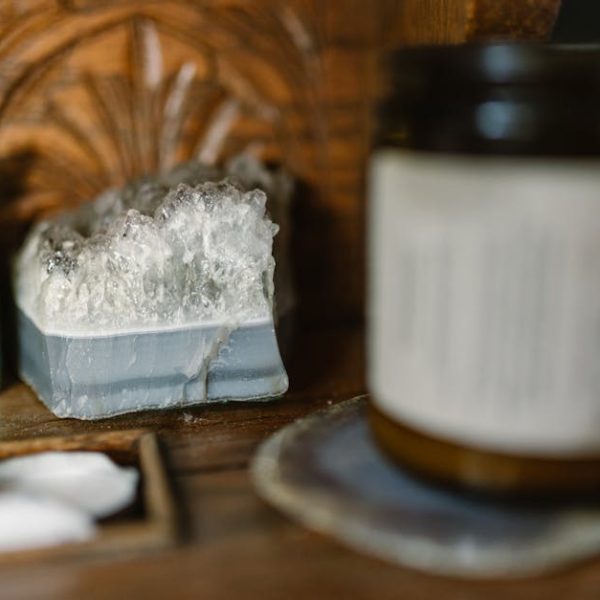Dealing with skunks is no laughing matter. The plight often starts subtly with small hints of stench or holes around the garden. Before you know it, these mini wrecking balls have turned your home into a skunk hotel. But here’s the good news. With the right preventive measures, it’s entirely possible to keep these creatures away from your cozy abode. We’ll dive deep into seven effective tactics to help you achieve a skunk-free sanctuary.
1. Properly Seal your Property
The first step in this journey is skunk-proofing your home. Start by examining your property for any openings that might invite not just skunks, but all kinds of rodents. Holes and cracks in the walls, space under decks, and unattended sheds can serve as the perfect hideout for these critters. Pro Tip: If an opening is big enough for a mouse, it’s likely big enough for a skunk too. Take care to utilize durable materials like hardware cloth, metal flashing, or concrete to seal these entry points effectively.
2. Regular Garbage Management
You’d be surprised at how big of a role your rubbish plays in attracting skunks. Leftover food and unattended garbage provide an easy feast for these critters. Make sure that your garbage cans are securely closed – using bungee chords if necessary. It’s also an excellent practice to keep your garbage cans inside a closed structure or garage. This way, you’re cutting off the food source and making your home less appealing to skunks. Comparison:
| Regular Garbage Management | Irregular Garbage Management | |
|---|---|---|
| Skunk Attraction | Low | High |
| Home Entrance Probability | Low | High |
3. Introduce Skunk Repellents
Skunk repellents are a go-to option for many homeowners. They come in two primary types – natural and chemical. Natural skunk repellents like citrus peel and pepper sprays can be a safe way to keep these creatures at bay. On the other hand, chemical repellents may provide a more lasting solution but might carry potential harm to other wildlife or pets. Pro Tips: Always reapply repellents after a rainfall and buy EPA-registered products for ensured effectiveness.
These first three tips should get you started on your journey to a skunk-free home! Stay tuned for more effective methods to ward off these black-and-white invaders.
4. Lighting the Property
Skunks are nocturnal by nature, meaning they are not fond of light. Installing floodlights or motion sensor lights around your property, especially in those shadowy corners, can make a significant difference. Bright environments act as a deterrent, making your home less enticing to these creatures. Pro Tip: Use solar-powered lights for an eco-friendly and cost-effective solution, and remember to angle lights towards potential entry points for maximum effectiveness.
5. Noise Deterrents
Similar to light, noisy environments can also deter skunks. These animals prefer serene, quiet areas, so using noise deterrents can help keep them at bay. You can consider options such as ultrasonic repellers or even a simple radio left on overnight. Pro Tips: Check local noise regulations before implementing this method and remember to change the location and type of noise every now and again to prevent the skunks from getting used to it.
6. Eliminating Food Sources
One of the key reasons skunks might invade your home is the easy availability of food. This includes pet food, bird feeders, fallen fruit from trees, and of course, your garbage. Make sure you don’t leave pet food outside, clean bird feeders regularly and dispose of fallen fruit promptly. Checklist:
- Store pet food indoors
- Regularly clean bird feeders
- Keep garden free of fallen fruit
- Never feed skunks
Best Practice: Implementing all the above steps consistently will create an environment that is unattractive to skunks.
7. Implementing a Skunk-Proof Fence
Last but not least, consider incorporating a skunk-proof fence around your property. This physical barrier can be an essential part of skunk control. Remember, skunks are not excellent climbers or jumpers, but they are adequate diggers. So the fence needs to extend below ground level. Mesh wire fencing is an affordable and effective option. Pro Tip: The fence should be at least 3 feet high and buried a foot underground.
| Fence Type | Effectiveness | Cost |
|---|---|---|
| Chain-Link | Low | Medium |
| Wire Mesh | High | Low |
| Wooden Picket | Medium | High |
Pro Tips: You can save some money by installing the fence yourself, but remember to check local laws about fencing before you start.
And there we have it – seven tried-and-true tips to keep skunks away. Keep in mind that patience is crucial, and consistency is key. You may need to try a combination of these methods and be persistent over time to achieve the best results. But it’s worth it. After all, everyone deserves a skunk-free home!
Key Takeaway:
- Survey and seal off potential entrance points for skunks in your property.
- Develop regular garbage management best practices to reduce skunk attraction.
- Make use of natural and chemical skunk repellents to deter skunks effectively.
- Create a brightly lit property environment since skunks are deterred by light.
- Utilize noise deterrents as a dissuasive measure because skunks prefer quiet areas.
- Remove and manage food sources meticulously as they attract skunks.
- Implement skunk-proof fences to physically restrict skunk access to your home.
A skunk-free home is not far from reach with time, patience, and consistent effort. These effective measures guarantee an uninviting environment for skunks. Fresh air and a pest-free home will soon be a reality, bringing you and your family much-needed peace of mind.
FAQs
Q: What are some common signs of skunk invasion?
A: You can spot a skunk invasion through clues like a pungent smell, holes in your garden, and damage to your property. If you observe these signs, switch to active prevention measures to stop further infestation.
Q: Are there any specific materials to seal skunk entry points effectively?
A: For effective sealing, use durable materials such as hardware cloth, metal flashing, or concrete. These help create a solid barrier that skunks can’t penetrate.
Q: How often should I replace/reapply skunk repellents?
A: The frequency depends on the type of repellent and the weather. Generally, repellents should be reapplied after rainfall or every few days to maintain their deterrent effect.
Q: Can I set up noise deterrents in any residential area?
A: Always check your local noise regulations before setting up noise deterrents, as these might disturb your neighbors or violate local rules.
Q: What type of fencing is most useful for skunk-proofing my property?
A: Wire mesh fencing is a cost-effective and efficient choice as it provides a physical barrier that skunks find hard to overcome.
Share this information with friends and family to help them keep their homes skunk-free too! Visit our website for more useful articles on home and property management.






